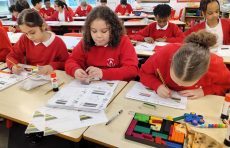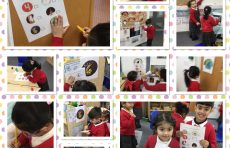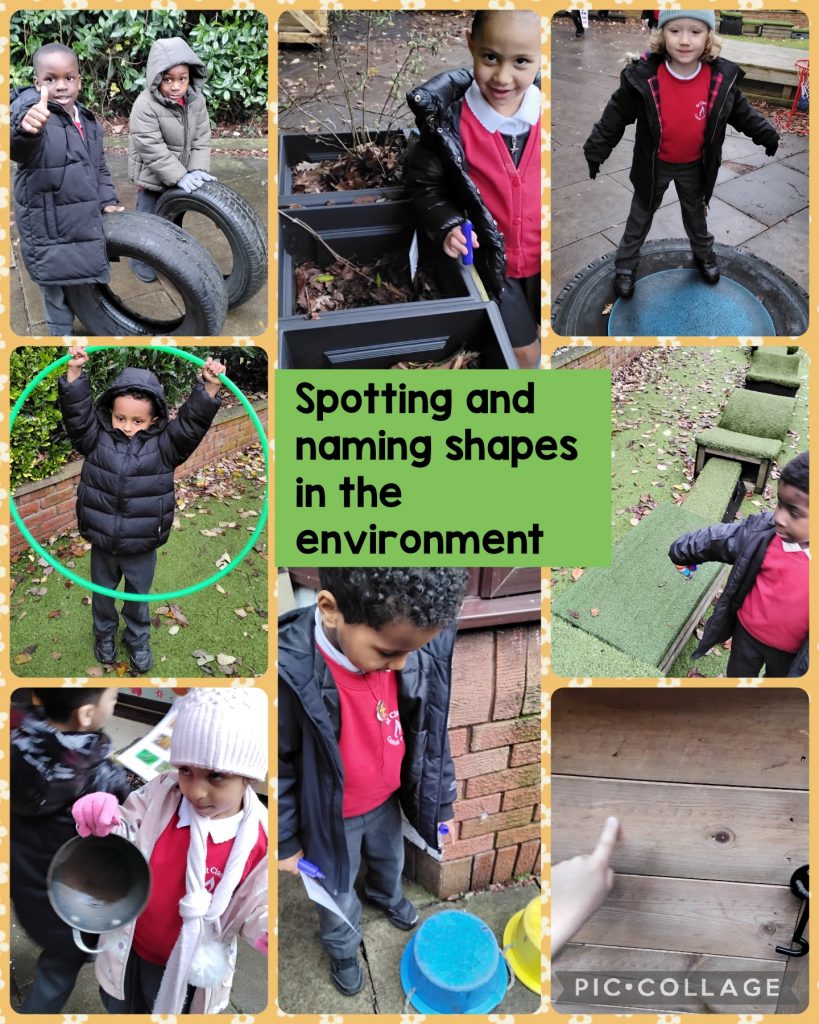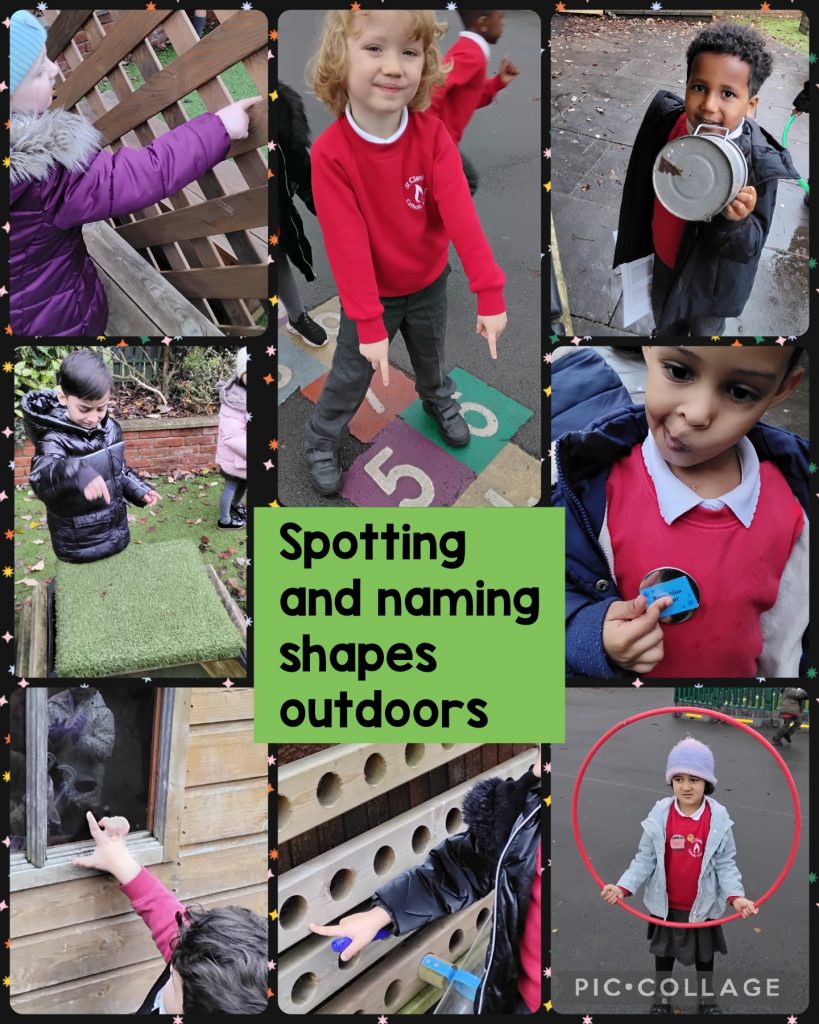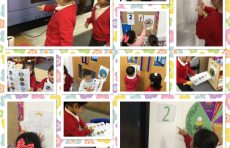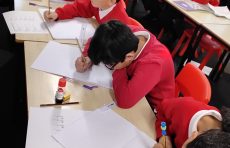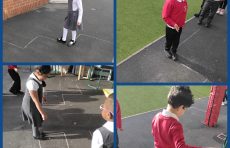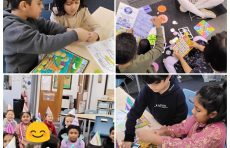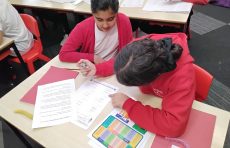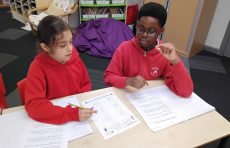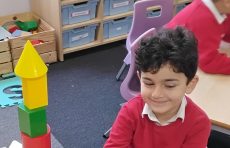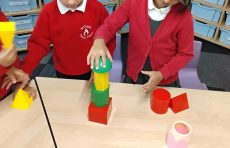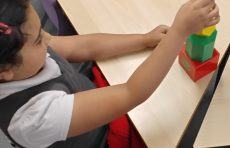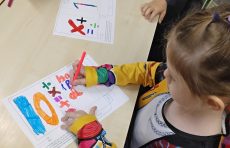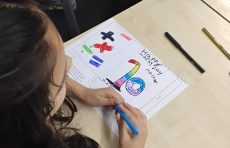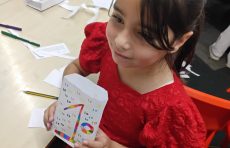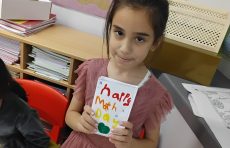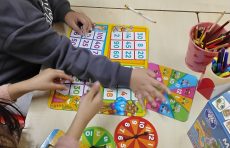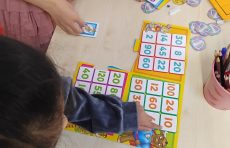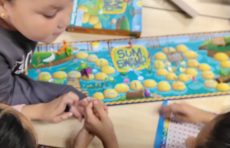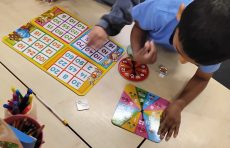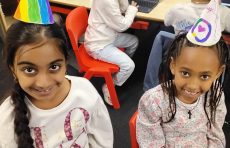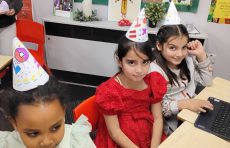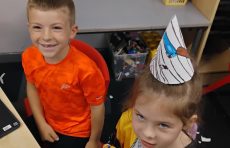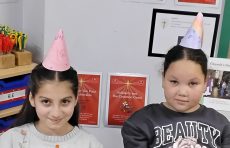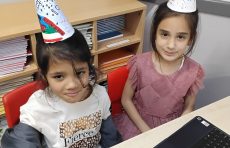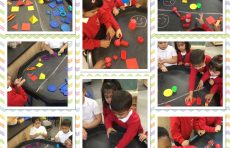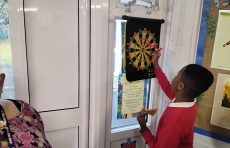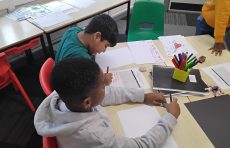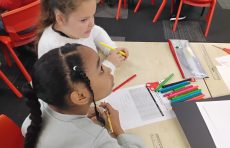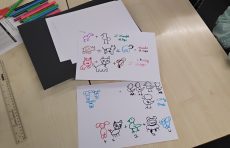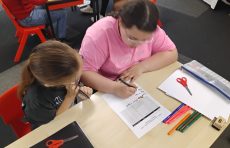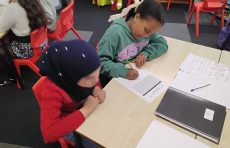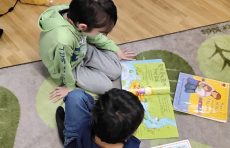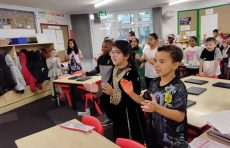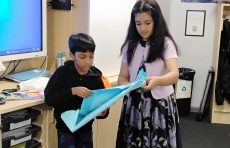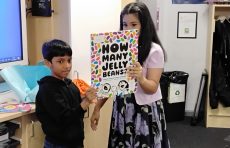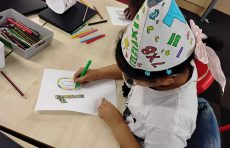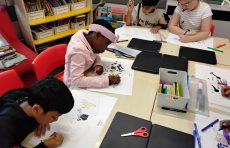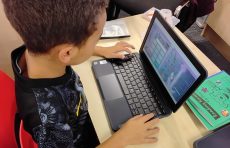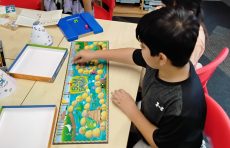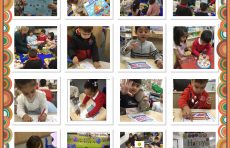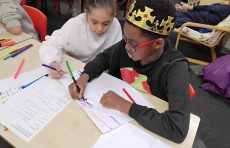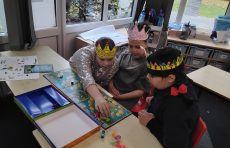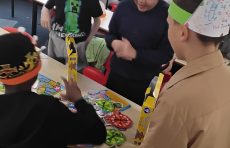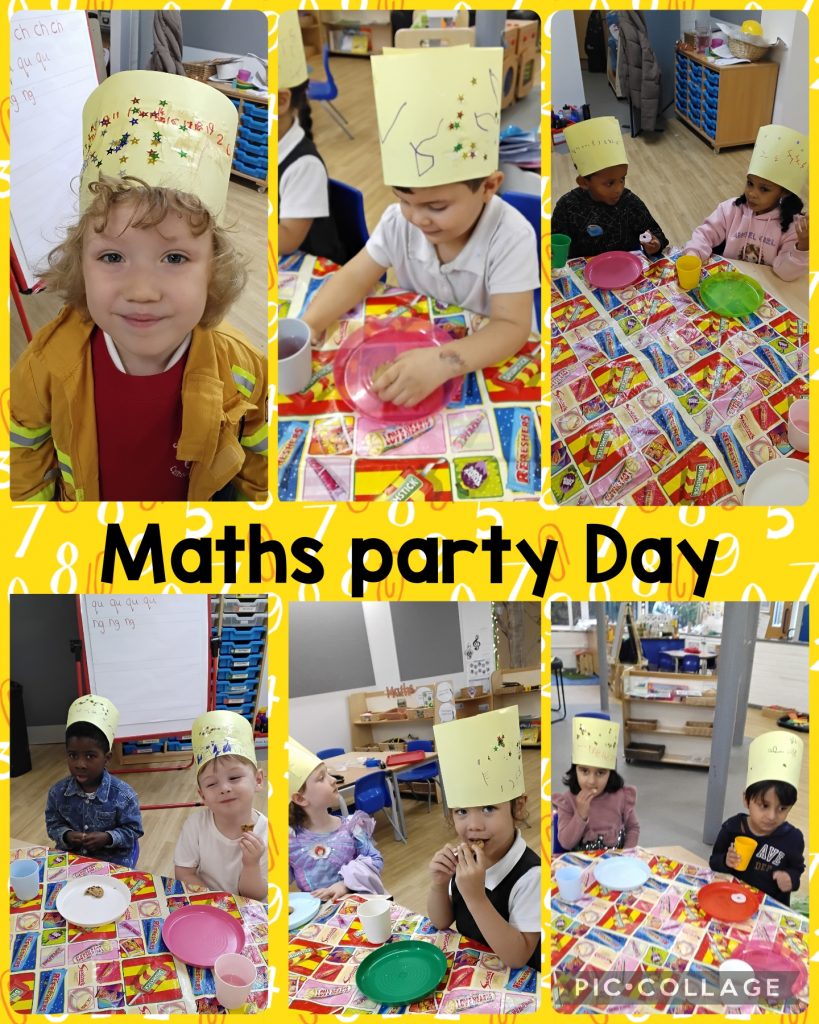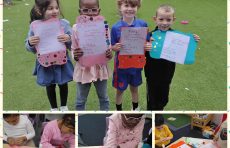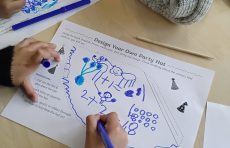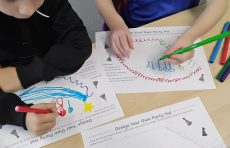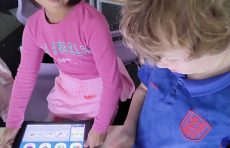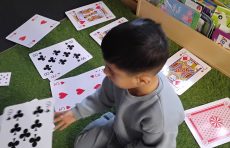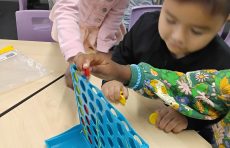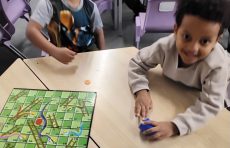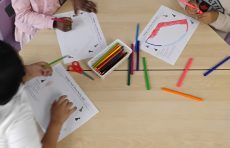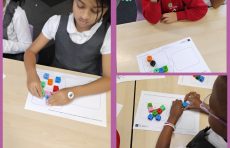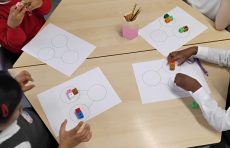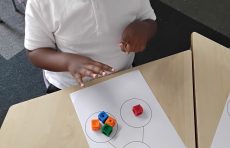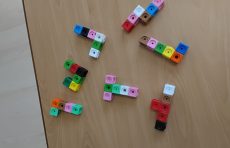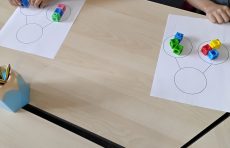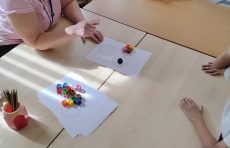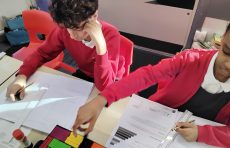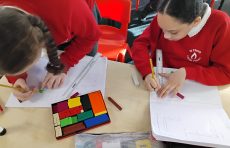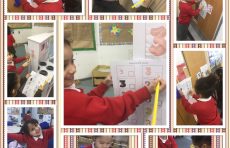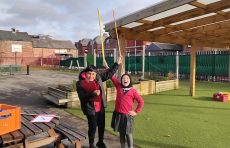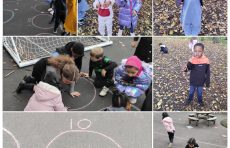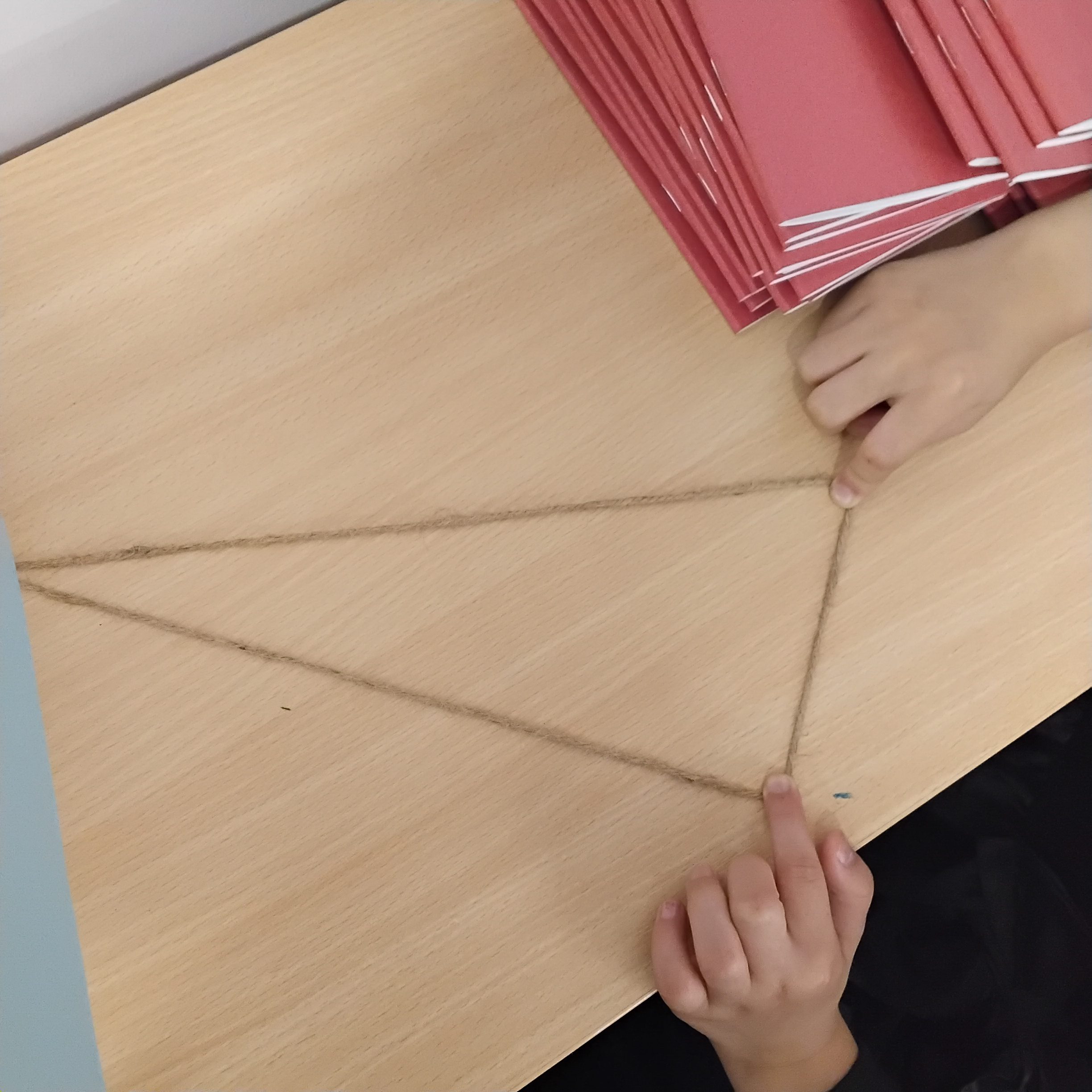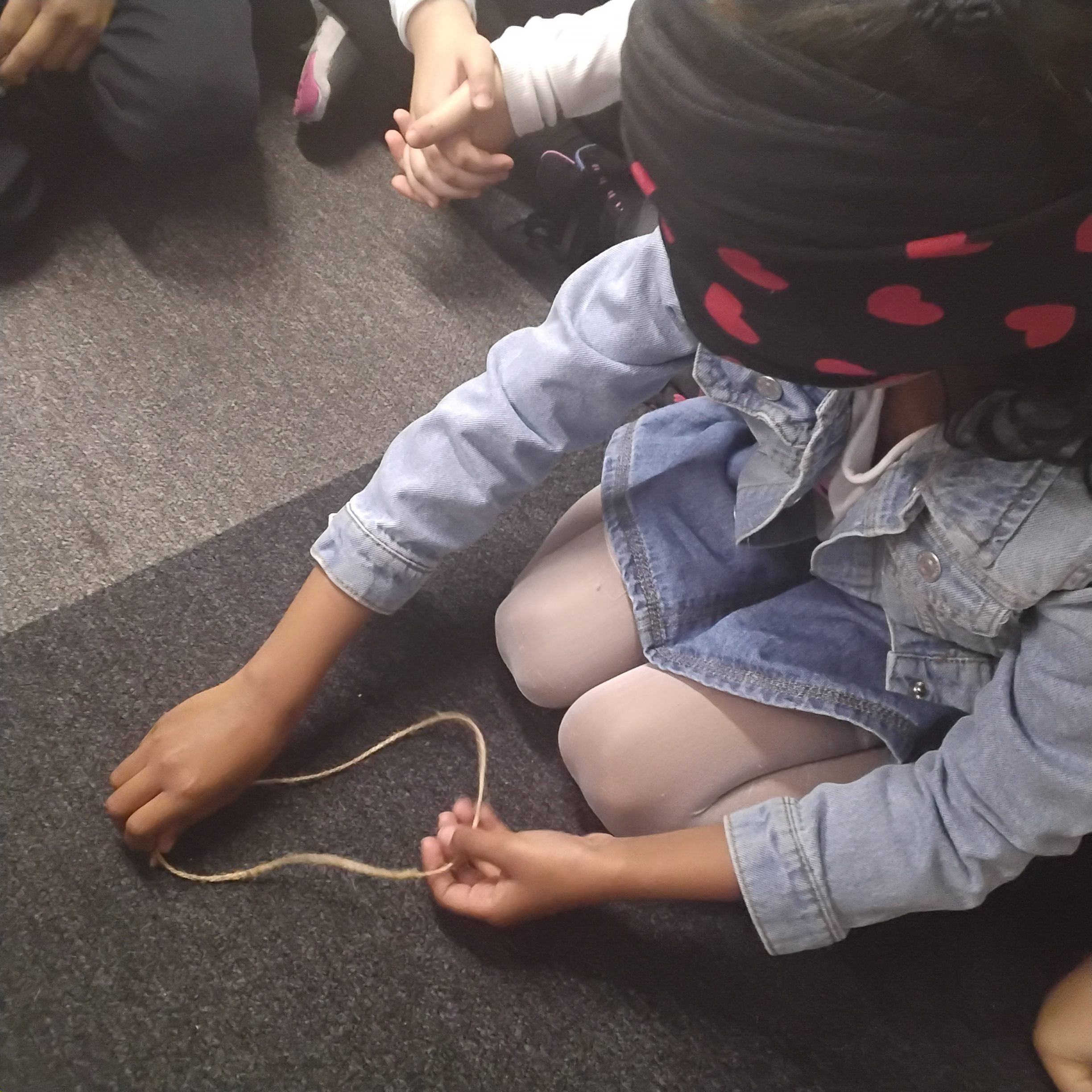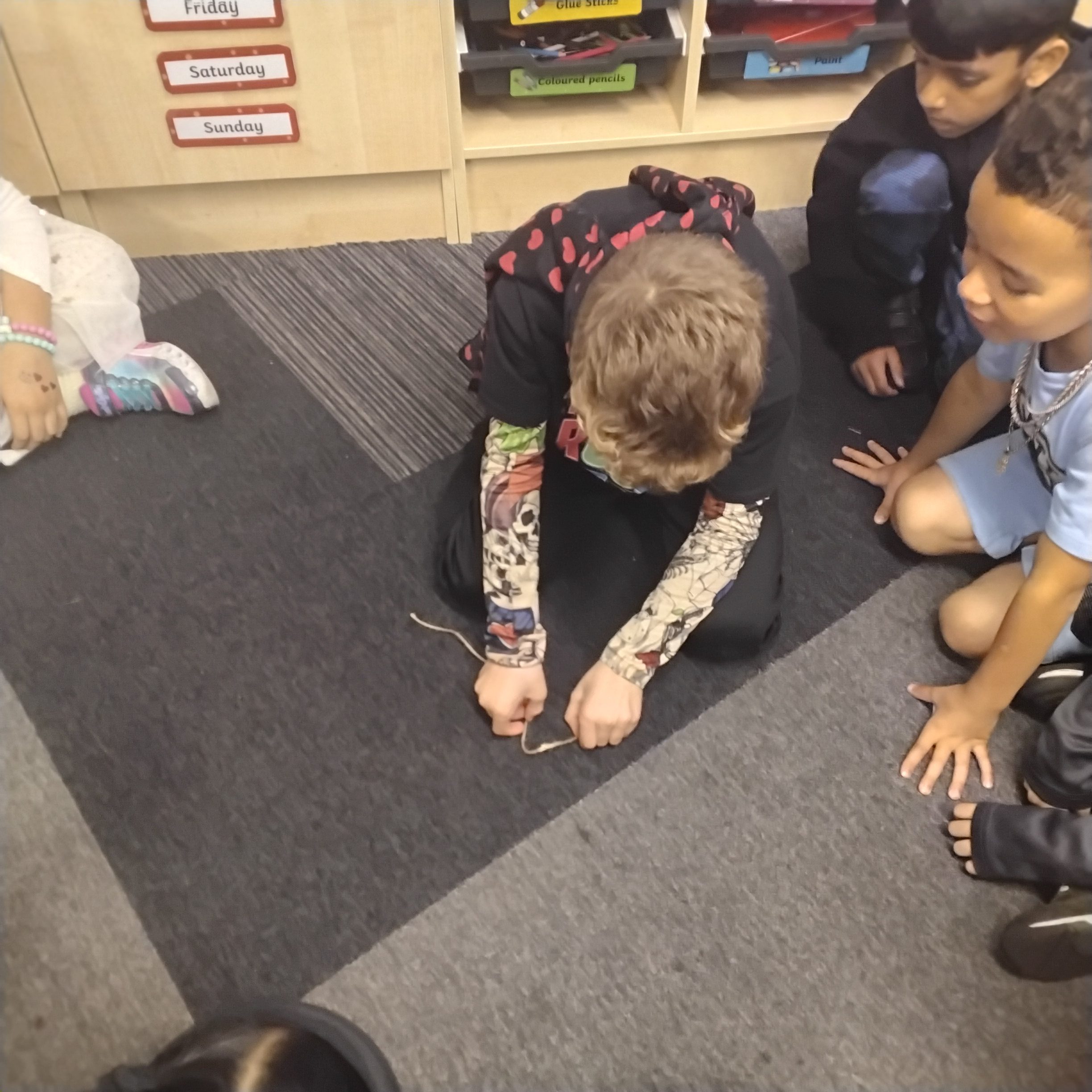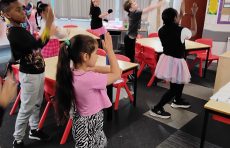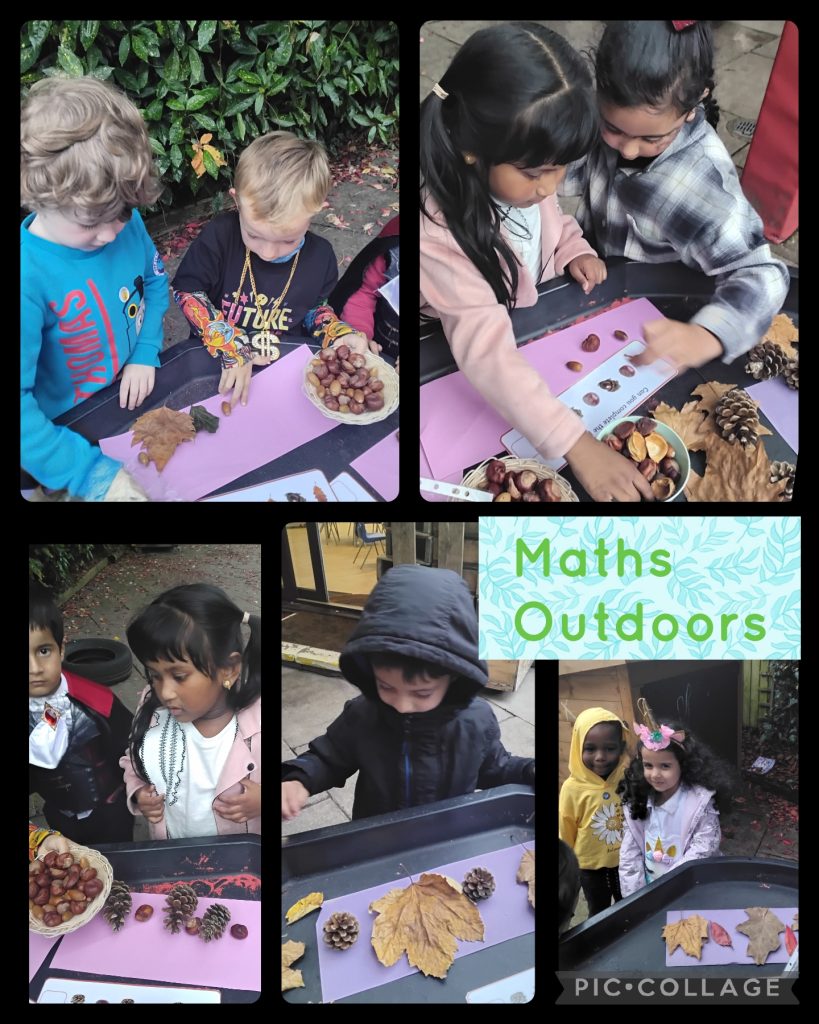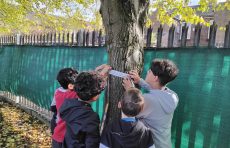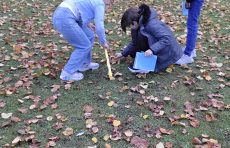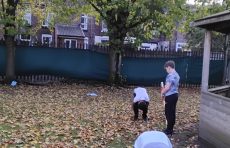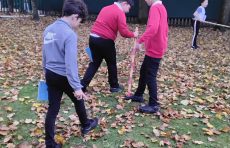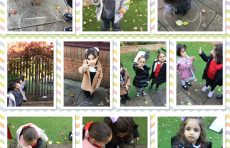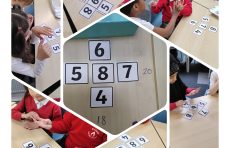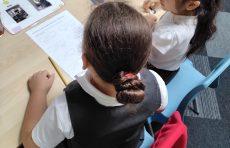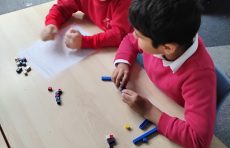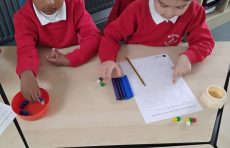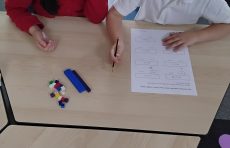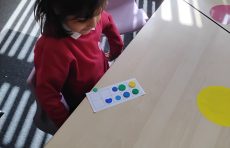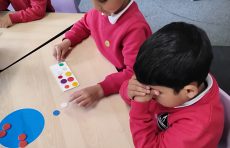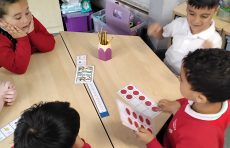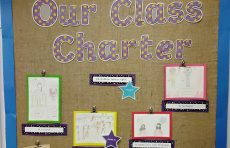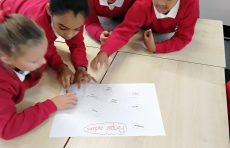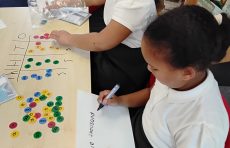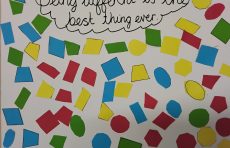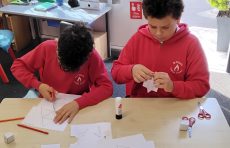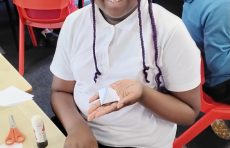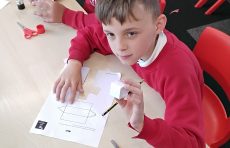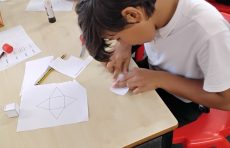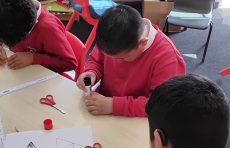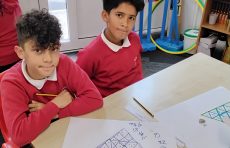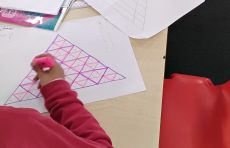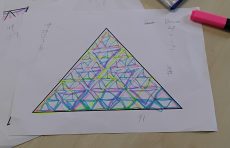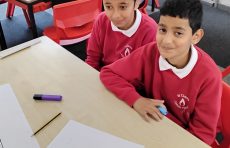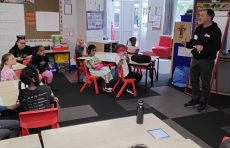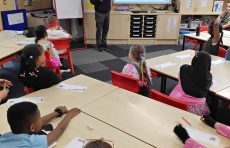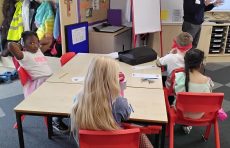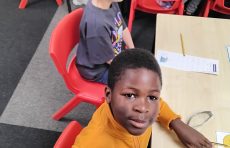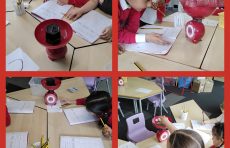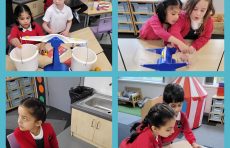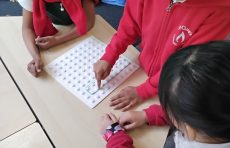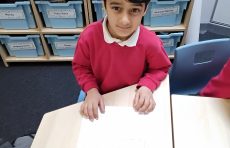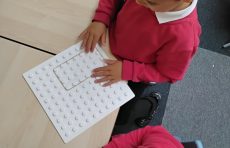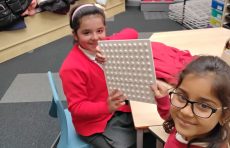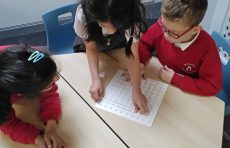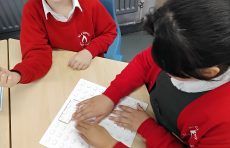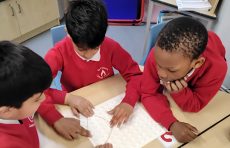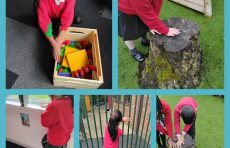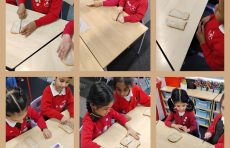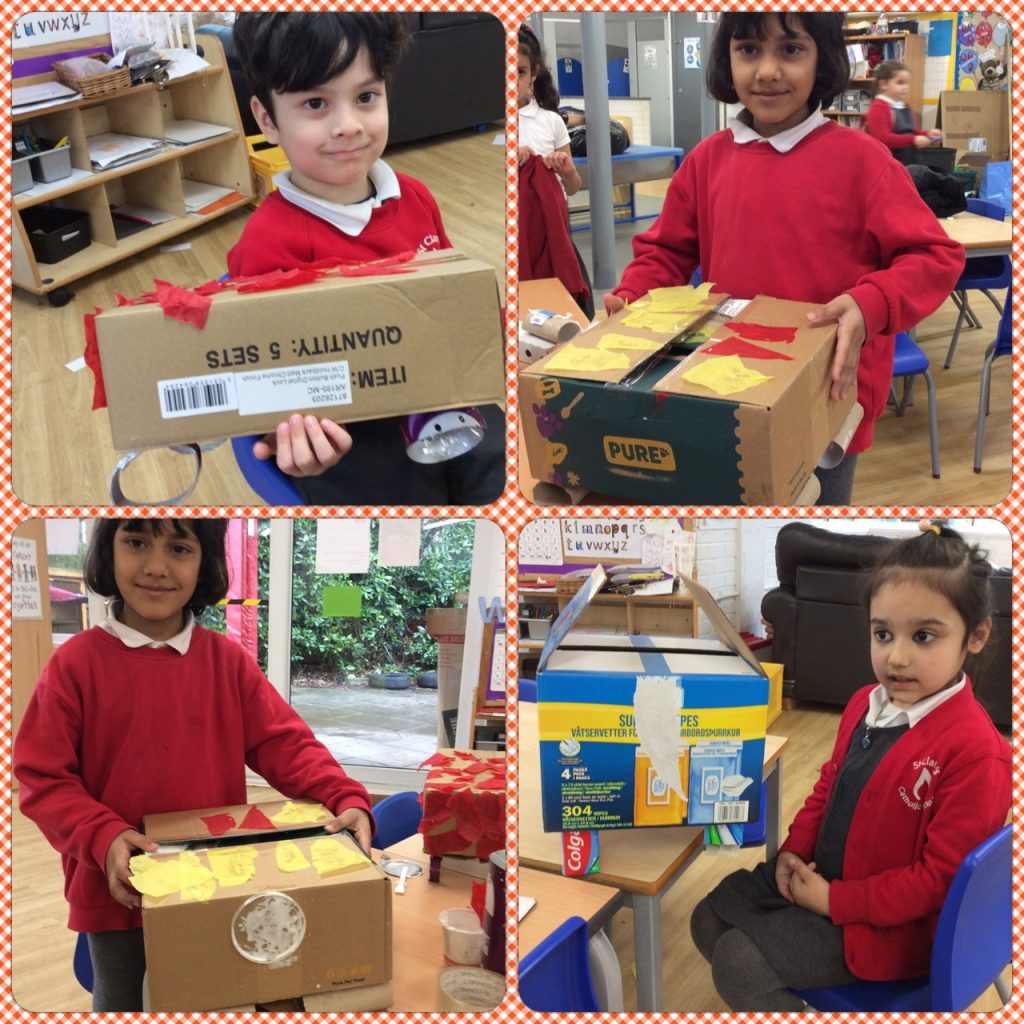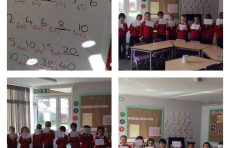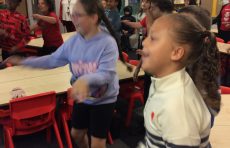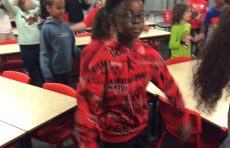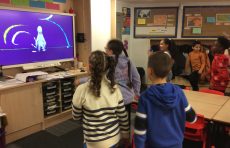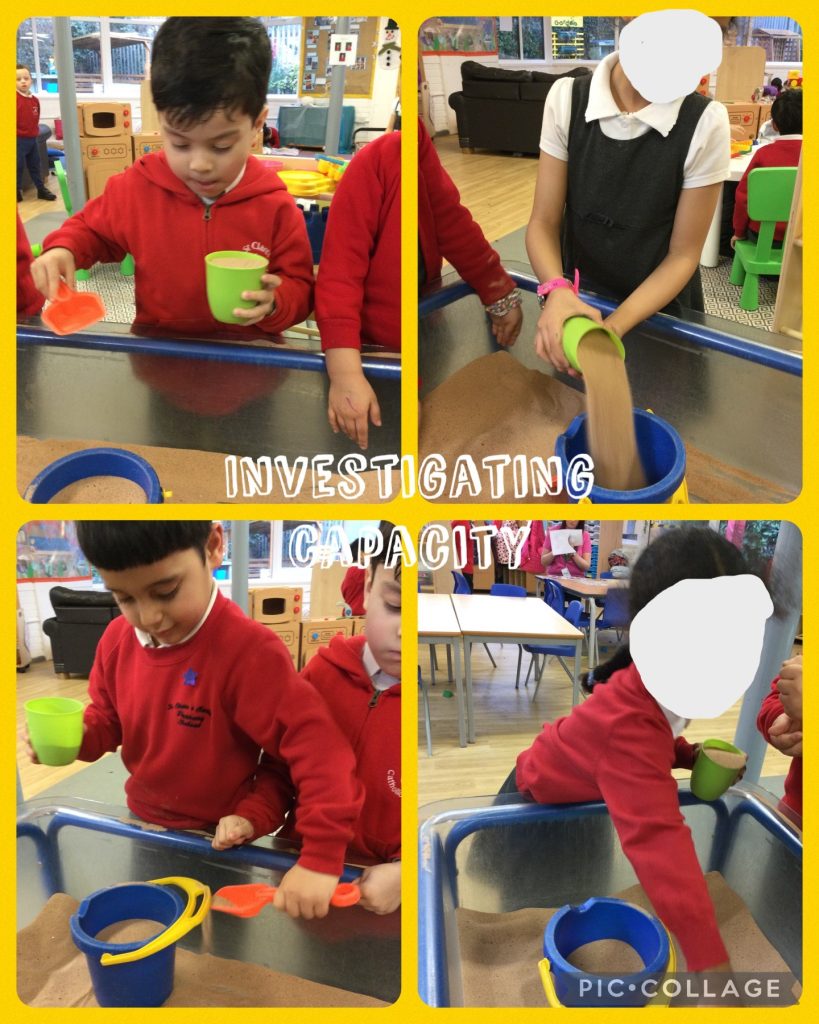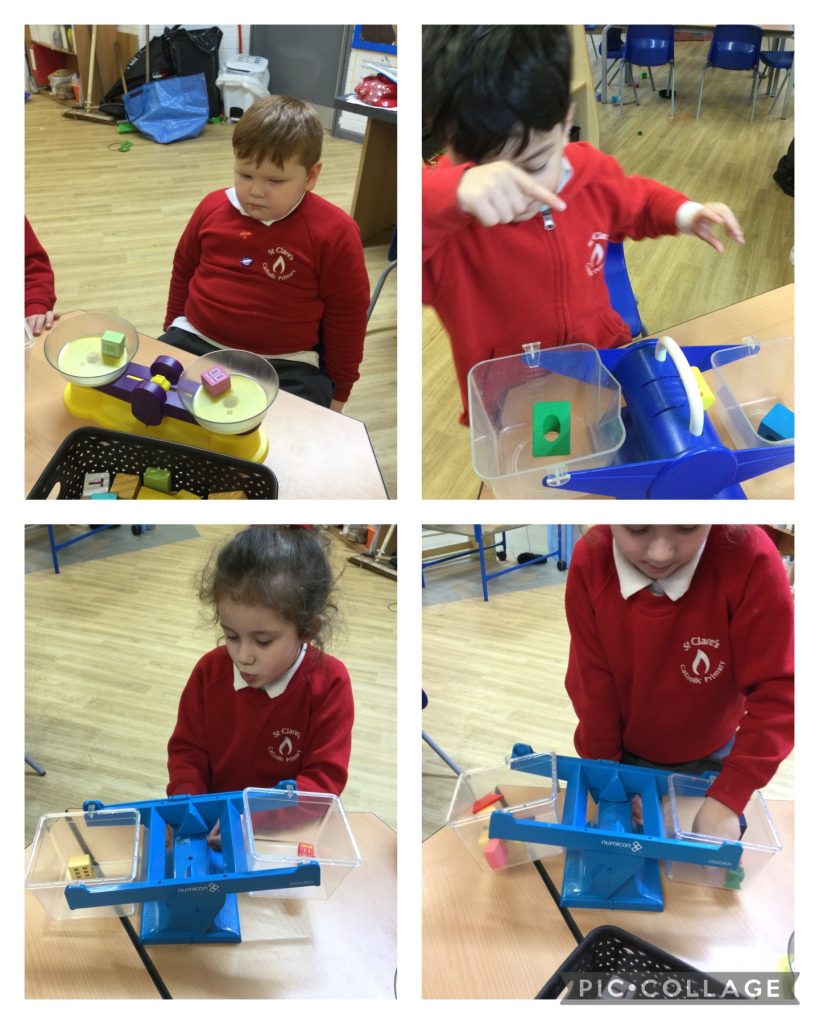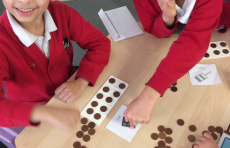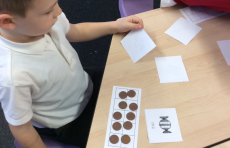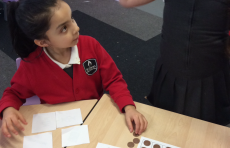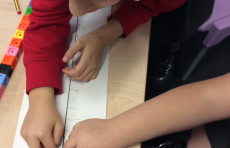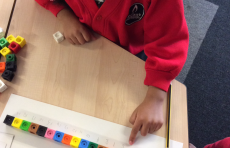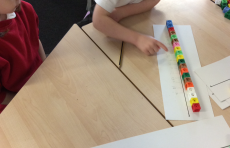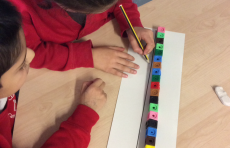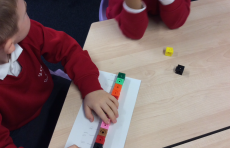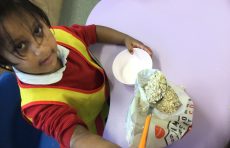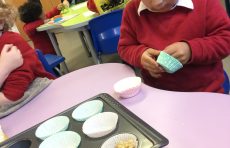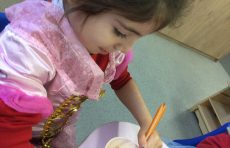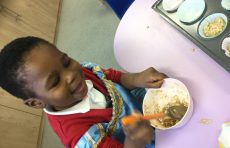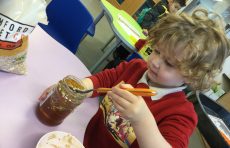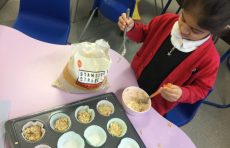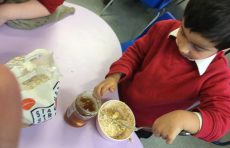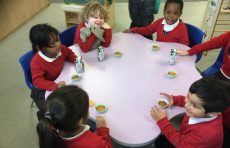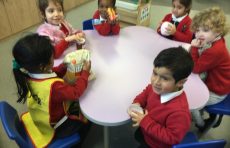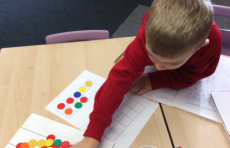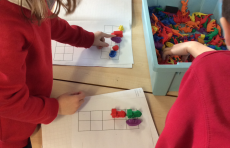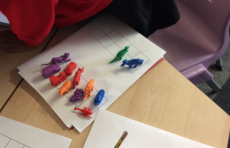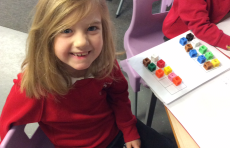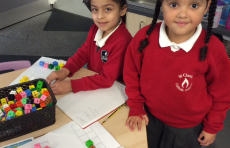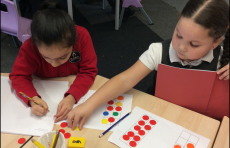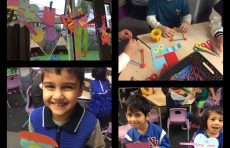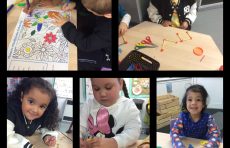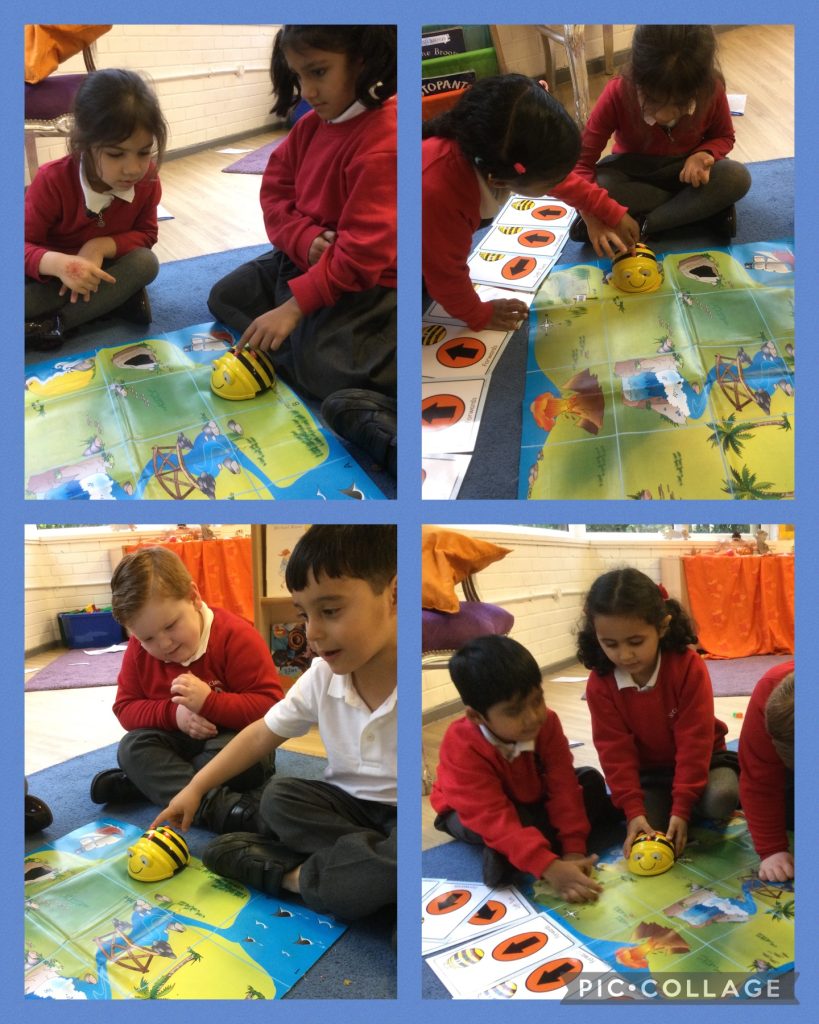“The Lord gives wisdom; from his mouth come knowledge and understanding.”
Proverbs 2:6
At St. Clare’s, we teach our children that wisdom and understanding are gifts from God. We encourage them to seek knowledge through their lessons, fostering growth and deepening their learning journey.
Catholic Social Teaching is integral to our whole curriculum. Here are some examples of where this can be seen in Mathematics:
Dignity of the Human Person
We are all unique and have our own God given talents and qualities. During mathematics, we support and challenge every pupil to achieve their potential. We encourage pupils to work together to support one another in their learning.
Dignity of Work
We recognise that work is a form of participation in God’s creation. At St. Clare’s, we instil a strong work ethic in our students by encouraging them to take pride in their efforts and achievements. We praise children for their work efforts in class with Dojo points and also through the mathematics award in our weekly awards assembly.
Family and Community
Families are the cornerstone of society, and we strive to support and strengthen our school community. We hold maths events throughout the year as a school community to promote and celebrate learning in mathematics such as TT Rockstars Day and Maths Party Day. Families are also welcome to our maths board games club held during the school year.
Intent
Maths is more than a school subject. A solid mathematical knowledge and understanding can be seen in the fields of science, engineering and technology but is an element in most forms of employment, as well as being a crucial part of personal financial literacy and household management. A child’s ability to calculate; apply knowledge; to communicate fluently; to reason and to solve problems mathematically, forms the backbone of their education for life. As the children implement their mathematical skills, they should be able to identify the practical relevance of this subject and be able to apply their knowledge in an ever wider set of familiar and new contexts. Yet, this will only be possible if the children’s appreciation of the subject is also nurtured, such that they gain a sense of enjoyment and a curiosity about maths.
A high-quality mathematics education therefore provides a foundation for understanding the world, the ability to reason mathematically, an appreciation of the beauty and power of mathematics, and a sense of enjoyment and curiosity about the subject. (National Curriculum July 2014)
At St. Clare’s Catholic Primary School our intention is to help children:
- enjoy maths through practical activity, exploration and discussion
- understand the importance of mathematics in everyday life
- become confident and competent with numbers and the number system
- become fluent in the fundamentals of mathematics
- develop conceptual understanding and the ability to recall and apply knowledge rapidly and accurately
- reason mathematically by following a line of enquiry
- spot relationships across domains, make generalisations and express an opinion using mathematical language
- solve problems by applying their mathematics to a variety of routine and non-routine problems, including breaking down problems into a series of simpler steps
- keep persevering in seeking solutions and be aware that there are often many or even no solution
- develop an appreciation of the creative aspects of maths; awareness of its aesthetic appeal
- see the historic context and present day relevance of mathematics
Implementation
Maths is a core subject, given significant time on the timetable, with a daily lesson in every class and a designated Maths Meeting session. The school follows a Mathematics Mastery curriculum developed by Ark Curriculum Plus (MyMastery) for Years 1-6 and Master the curriculum for Nursery and Reception. The MyMastery programme has been adopted as it is rigorous, promotes and facilitates a broad number sense and follows the pedagogical approach of concrete-pictorial-abstract to enable all pupils to access the curriculum. Teaching for mastery allows pupils to communicate using a rich mathematical vocabulary which promotes understanding and reasoning.
We use the three ‘Dimensions of Depth’ (mathematical thinking; language and communication; and conceptual understanding) to deepen pupils’ understanding, which enables problem solving across mathematical domains.
The MyMastery curriculum is cumulative. Concepts and mathematical skills are built upon throughout each year and across year groups. This allows for concepts to be embedded and revisited regularly to promote recall, retention and application of skills.
The subject is well resourced with practical materials which enable pupils to learn mathematical concepts using concrete apparatus before transitioning to pictorial and abstract methods. Pupils over time identify which calculations need a practical tool for support; which should be completed using a formal method; and which should be done mentally or with jottings. Teachers use and emphasise mathematical vocabulary throughout each stage of the lesson and link the teaching to real-life situations.
Rosenshine’s ten principles of instruction are woven through MyMastery. By following these principles we are able to support all learners to achieve in mathematics. For example, new material is broken into small steps and teachers check pupils have understood this content both within and across lessons. Teachers also ensure that they use the visualiser and modelled examples so that pupils have scaffolds on which to base their new learning. Pupils are then given opportunities to apply their skills independently.
Class teachers adapt each lesson to suit the needs of all learners in their class. This includes adaptations for EAL learners, children with SEND and children who are working beyond the expectations of their year group. This is achieved through: adult support; the use of mathematical equipment; placing an importance on the use of correct mathematical vocabulary and the adapting of tasks given to pupils to scaffold or challenge them in their learning.
At our school, we recognise the vital role of oracy in children’s overall development and future success. We are committed to embedding opportunities for all pupils to develop their speaking and listening skills across the curriculum. In mathematics, pupils have opportunities to talk using mathematical vocabulary during daily talking tasks. Regular ‘talk partners’ encourage structured dialogue, while wider discussions allow safe space for all voices to be heard. Pupils are encouraged to orally present their mathematical reasoning throughout maths sessions. Tailored support for children with additional language needs, including vocabulary-rich interventions, will ensure that all pupils can participate meaningfully in discussions and articulate their ideas with confidence.
Assessment takes place before each unit of mathematical learning through ‘pre tasks’. Teachers use these tasks to evaluate pupils’ prior knowledge and make adaptations to the unit to scaffold and provide challenge to all pupils. At the end of each unit, a ‘post task’ assessment is completed by pupils. Teachers use this to assess progress and inform future planning. At the end of each term, pupils are assessed using NFER tests and SATs tests at the end of a Key Stage.
Impact
The impact and success of mathematics teaching is seen in the monitored progress of each child; the positive outcomes of the pupil voice questionnaires and interviews; and the children’s independence in lessons. Mathematical confidence, the ability to take on new challenges and yet draw on previous experience, ensures that the children are ready to face the mathematical realities of everyday life.
Key Curriculum Documents
Challenging negative attitudes about mathematics.
Making a difference : Top Tips
- Be aware of what you say about maths, especially around children.
- Challenge ANYONE that you hear making negative comments about maths.
- Any time you hear celebrities in the media saying that they ‘can’t do maths’, or making negative comments about maths, discuss it with your children.
- Share your own enjoyment of maths and highlight when you have used it in everyday life.
- Dispel the myth that there is a maths gene and that only a few people can be good at maths.
- Encourage everyone to be positive- share ‘top tips’ with them including praising effort with maths not just achievement!
Helping Your child at home
Apps your child has access to in school that can be used at home:
TT Rockstars
NumBots
Purple Mash
(If your child requires login details please speak to their class teacher)
List of Maths Websites and Apps for Parents / Carers
- National Numeracy Parent Toolkit – has a wealth of tips and advice for parents.http://www.nnparenttoolkit.org.uk/
- Oxford Owl – includes a range of activities, top tips and eBooks to help your child with their maths at home.
http://www.oxfordowl.co.uk/maths-owl/maths
- Maths 4 Mums and Dads – explains some of the milestones children make between the ages of 3-and-11-years-old.
http://www.maths4mumsanddads.co.uk/index.php
- Nrich – A range of maths games, problems and articles on all areas of maths. Parents of Key Stage 1 children should select ‘stage 1’ and parents of Key Stage 2 children should select ‘stage 2’.
http://nrich.maths.org/frontpage
List of Maths Websites for Children
http://www.bbc.co.uk/bitesize/ks1/maths/
http://www.bbc.co.uk/bitesize/ks2/maths/
http://amathsdictionaryforkids.com/
http://www.ictgames.com/resources.html
http://www.ilovemathsgames.com/
http://www.mathsisfun.com/index.htm
http://www.multiplication.com/
http://www.primarygames.co.uk/
http://resources.woodlands-junior.kent.sch.uk/maths
Maths Apps
Many of the suggested maths apps on this website are free; others require a payment.
